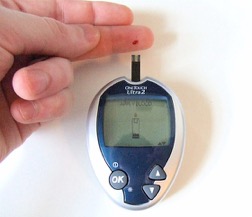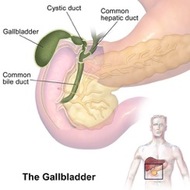
Remove foods that cause inflammation
Many foods people eat daily can be inflammatory, causing fatigue, rashes, joint pain, digestive issues, headaches, anxiety, depression, autoimmune flare ups, and more.
The foods most people react to are gluten, dairy, various grains, eggs, nuts, and nightshades. Sugar, sweeteners, and sweet fruits also cause inflammation.
The autoimmune detox diet calms inflammation
People new to this diet often wonder if there is anything left to eat. There is plenty to eat on the autoimmune diet! In fact, the autoimmune diet more closely resembles what people have eaten for most of human history.
The diet is based on grass-fed and organic meats, wild fish, healthy fats, fermented foods, and lots of veggies. Eating plenty of vegetables will help build good gut bacteria, detoxify the liver, and boost immune health and tolerance of more foods.
Healthy fats include coconut oil, avocado oil, olive oil, and ghee (if tolerated). Avoid processed vegetable oils and strictly avoid hydrogenated oils, or trans fats.
The rewards of feeling better outweigh the downsides
The autoimmune detox diet is certainly more work than eating fast food or microwave meals. But the rewards in how much better it will make you feel are worth the effort.
This diet requires planning and preparation. You may experience cravings, low energy, and some detox symptoms for a few days in the beginning. Online support groups can be very reassuring and helpful.
However, it doesn’t take long before most people feel an increase in energy and well being and actually come to enjoy the diet. Many also lose unwanted fat.
After following the diet for 30 to 90 days, you may wish to add in some of the eliminated foods — one at a time every 72 hours — to see whether you react to any of them. This will help you customize a lifelong diet that is healthy but satisfying. Many find going off at least gluten and dairy bring substantial health benefits.
Supplements to enhance detoxification and gut repair
Certain nutritional compounds can aid in your health reboot. Some are great at supporting liver detoxification, gut repair, blood sugar balance, and stress handling, all of which can aid you in your new diet. Just call my office for advice.
Foods to avoid on the autoimmune detox diet
- Sugars and sweeteners, including honey, agave, maple syrup, coconut sugar, etc.
- High-glycemic fruits: Watermelon, mango, pineapple, grapes, canned and dried fruits, etc.
- Tomatoes, potatoes, peppers, eggplant, and other nightshades
- Mushrooms
- Grains: Wheat, oats, rice, barley, buckwheat, corn, quinoa, etc.
- Dairy: Milk, cream, cheese, butter, whey
- Eggs or foods that contain eggs (mayonnaise)
- Soy: Soy milk, soy sauce, tofu, tempeh, etc.
- Alcohol
- Lectins: Lectins are compounds that can promote leaky gut. Avoid nuts, beans, soy, nightshades, peanut oil, peanut butter, and soy and soy products while on the diet. You may be able to add some or all back in later.
- Coffee: For some coffee over taxes the adrenal glands. Many instant coffees contain gluten.
- Processed and canned foods
Foods to eat
- Most vegetables (except nightshades and mushrooms): Asparagus, spinach, lettuce, broccoli, beets, cauliflower, carrots, celery, artichokes, garlic, onions, zucchini, squash, rhubarb, cucumbers, turnips, watercress, etc. Eat with every meal!
- Fermented foods: Sauerkraut, kimchi, pickled ginger, fermented cucumbers, coconut yogurt, kombucha, etc. You must make your own or buy one of the few available truly fermented brands. (If you have histamine intolerance you may need to avoid these.)
- Meats: Grass-fed and organic chicken, turkey, beef, bison, lamb, etc., and wild fish
- Low glycemic fruits sparingly: Apricots, plums, apple, peach, pear, cherries, berries, etc.
- Coconut: Coconut butter, milk, cream, oil
- Herbal teas, non-stimulating, non-caffeinated
- Olives and olive oil
- Ghee (butter oil) unless severe dairy allergy


 RSS Feed
RSS Feed